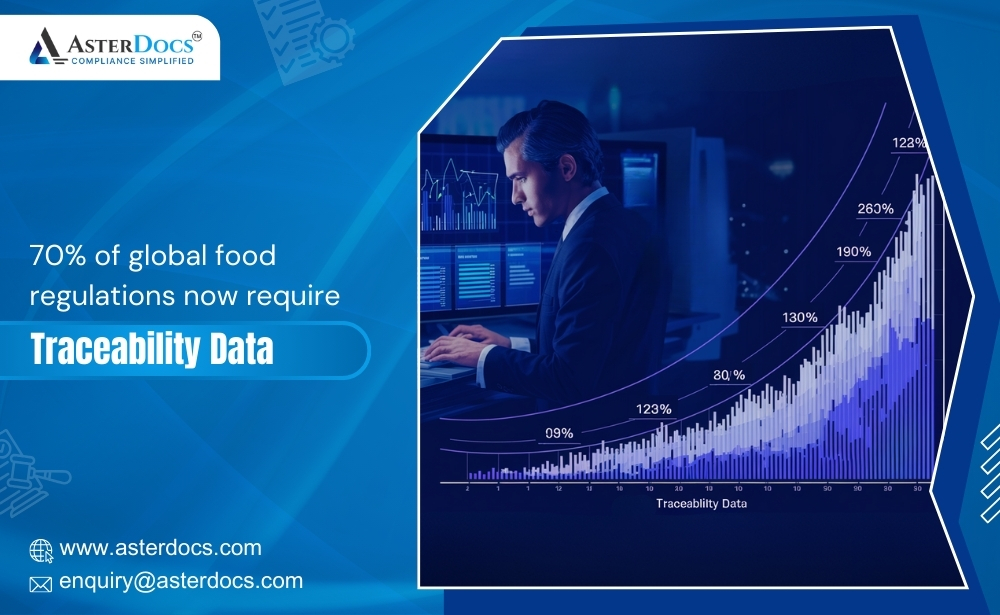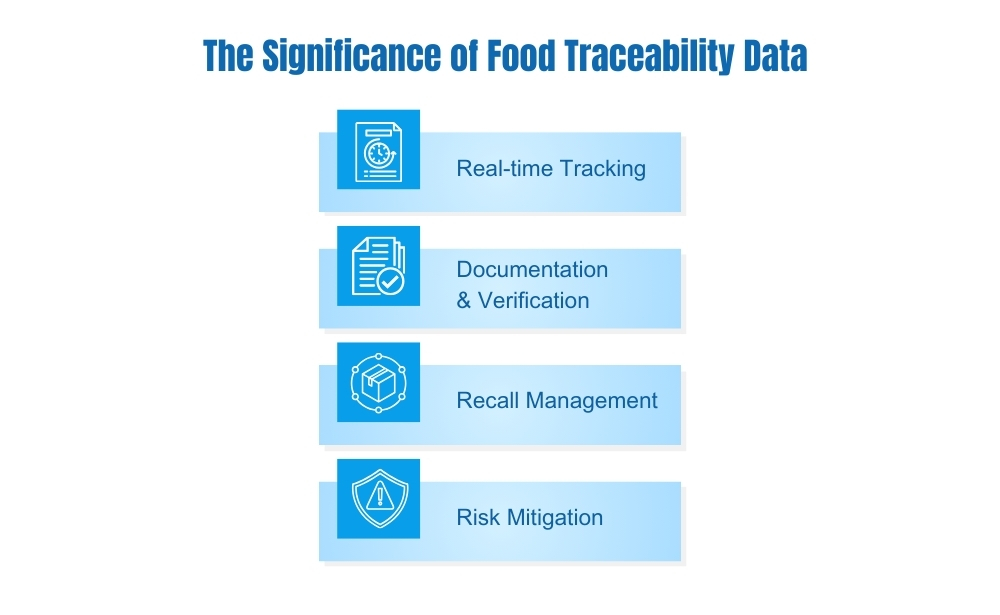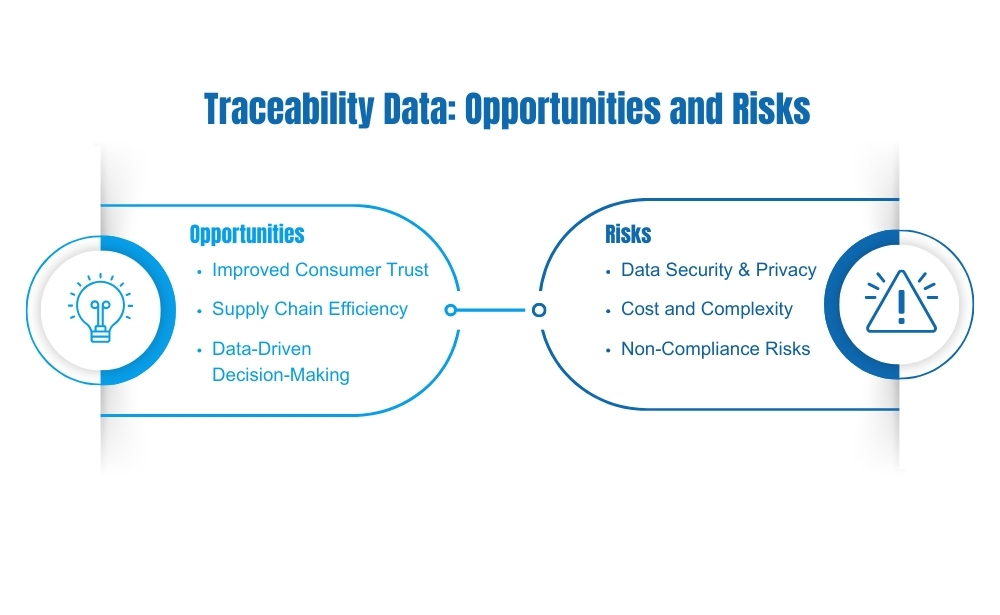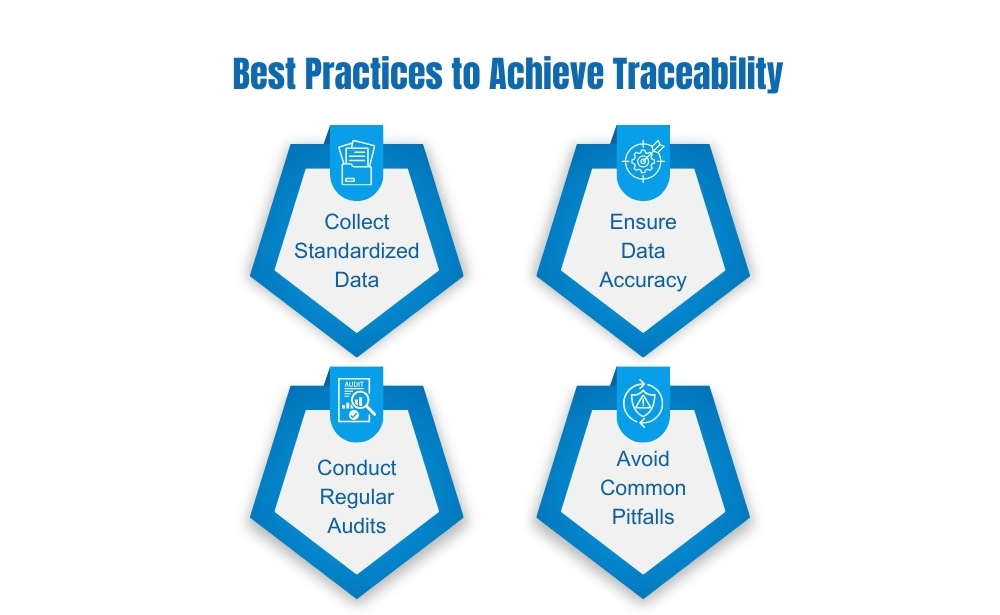Ensuring the safety of the food we consume has never been more critical, and global regulations are evolving rapidly to keep pace with this imperative. One thing is clear across all regions: traceability. But what does this mean for businesses operating in the food industry?
To begin with, let us review the international food safety regulations and how food traceability data can assist companies in adhering to these regulations.
Global Overview of Current Food Safety Regulations
Food safety regulations vary globally, but one common theme is the increasing emphasis on food traceability data. Let’s take a closer look at the key regulations in some major regions:
USA:
The Food Safety Modernization Act (FSMA) is a landmark law that focuses on preventing food safety issues rather than responding to them after they occur.
FSMA requires companies to implement traceability systems that allow for rapid identification and recall of contaminated products.
European Union:
The General Food Law Regulation mandates that food businesses must have systems in place to trace food and feed at all stages of production, processing, and distribution.
The Rapid Alert System for Food and Feed (RASFF) ensures swift action when food safety risks arise, relying heavily on accurate traceability data.
United Kingdom:
Post-Brexit, the UK has introduced its own food safety regulations, closely mirroring those of the EU but with some key differences.
The Food Standards Agency (FSA) emphasizes the need for businesses to maintain traceability throughout the food supply chain, ensuring transparency and accountability.
Other Regions:
Countries like Canada, Australia, and parts of Asia are also tightening their food safety regulations.
While there are variations in the specific requirements, the trend toward stricter regulations and the need for robust traceability systems is clear across the globe.
How Food Traceability Data Aids in Compliance
Traceability in the food industry refers to the ability to track and trace food products through all stages of production, processing, and distribution.
This capability is vital for several reasons:
Real-time Tracking: Traceability data allows businesses to track ingredients and products in real time across the entire supply chain. This ensures that every step, from raw material sourcing to final product distribution, is monitored and recorded.
Documentation and Verification: Compliance with food safety regulations often requires detailed documentation. Traceability data provides the necessary verification, proving that food safety practices were followed at every stage.
Enhanced Recall Management: In the event of a food safety issue, traceability data enables companies to quickly identify and recall affected products, minimizing harm and protecting consumer trust.
Risk Mitigation: By using traceability data, companies can identify potential risks before they become significant problems. This proactive approach helps prevent non-compliance and reduces the likelihood of costly recalls.
Opportunities and Risks of Using Traceability Data
While the benefits of traceability data are clear, there are also some opportunities and risks to consider:
Opportunities:
Improved Consumer Trust: Transparency in the supply chain builds consumer confidence in the safety and quality of food products.
Enhanced Supply Chain Efficiency: Traceability data can streamline operations, leading to cost savings and better resource management.
Data-Driven Decision-Making: Access to detailed traceability data allows businesses to make informed decisions, fostering innovation and improving product quality.
Risks:
Data Security and Privacy: Storing and managing vast amounts of food traceability data can pose security risks if not handled correctly.
Cost and Complexity: Implementing and maintaining a robust traceability system can be costly and complex, especially for smaller businesses.
Risk of Non-Compliance: Inaccurate or incomplete data can lead to non-compliance, resulting in fines, recalls, and damage to the brand.
The right way to achieve traceability
To ensure accurate and effective traceability, businesses should consider the following practices:
Standardized Data Collection: Implementing standardized processes for data collection and reporting ensures consistency and reliability across the supply chain.
Ensuring Data Accuracy: It’s crucial to maintain accurate and complete data at every stage of the supply chain. This can be achieved through regular audits and updates to the traceability system.
Regular Audits: Regular audits and updates help identify and correct any issues in the traceability system, ensuring continuous compliance.
Avoiding Common Pitfalls:
Over-Reliance on Manual Processes: Automated systems reduce the risk of human error and increase efficiency.
Lack of Integration: Ensure that all systems and databases are integrated to provide a seamless flow of information across the supply chain.
Leveraging Technology and Software Solutions
Technology plays a pivotal role in enhancing traceability in the food industry. Here’s how:
Blockchain, IoT, and AI: These technologies are revolutionizing food traceability by providing real-time data, enhancing transparency, and reducing human error.
Software Solutions: There are specialized software solutions designed to manage food traceability data, helping companies comply with regulations more efficiently.
Benefits of Technology:
Automation: Automating data collection and reporting ensures accuracy and reduces the burden on staff.
Transparency: Advanced software solutions enhance transparency, making it easier to comply with stringent regulations.
Conclusion
Food traceability data is not just a regulatory requirement; it’s a critical tool for ensuring food safety and building consumer trust. However, investing in robust traceability solutions will help businesses stay ahead of stringent regulations.
AsterDocs offers a comprehensive solution for managing compliance documents and traceability data. With in-built compliance document checklists and real-time monitoring, AsterDocs helps the nutraceutical and food industries adhere to global safety regulations seamlessly. By reducing potential quality and non-compliance risks, it ensures that your business meets the highest standards of safety and transparency.
Ready to streamline your compliance process? Let AsterDocs be your partner.
















